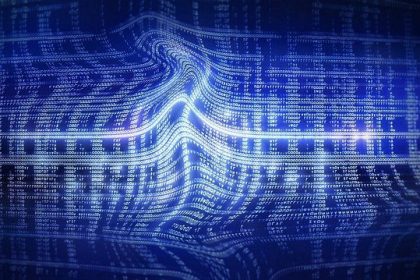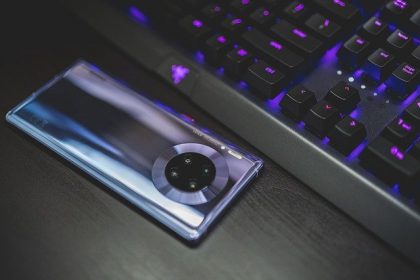If it is “necessary” for an intended use of the computer program, EU law allows an act including error correction. So does this include decompiling software? Is the acquirer of a computer program or the licensee of a software licence entitled to decompile it in whole or in part in order to correct program errors?
Decompiling software as bug correction: illegal?

The ECJ ruled on a question from Belgium on the right to a software licence and on decompiling software (C-13/20).
The core question was: Is the lawful acquirer of a computer program or the licensee of a software licence entitled to decompile it in whole or in part in order to correct program errors? And is it even permissible to deactivate a function that impairs the proper functioning of the programme application?
This is exactly what happened in the present case concerning the right to license and decompiling software. In 2008, Selor (Selection Office of the Federal Administration, Belgium), the defendant in the main proceedings, and the plaintiff Top System (Belgium) entered into a contract concerning the installation and configuration of a new development environment and the integration and migration of the sources of the Selor applications into this new environment. A few months later, both parties tried to fix functional problems of certain applications – but unfortunately in vain.
Finally, Selor decompiled the software, despite the Top System’s exclusive rights on this.
For better understanding: Decompilation is the reworking of a computer program with the translation of the program back into the source code. This is because software manufacturers of computer programs usually do not provide their customers or licensees with their computer program in source code, but in so-called object code, often in the user’s view. Functional errors and bugs, however, can only be corrected in the source code.
Decompiling software and software licence
Plaintiff Top System brought an action for declaratory relief against Selor for this infringement and claimed damages for decompilation of the software and copying of the software source codes. These original proceedings are before the Cour d’appel de Bruxelles (Court of Appeal, Brussels, Belgium), which referred the question of the right to license and decompile software to the ECJ as reference for a preliminary ruling.
The applicant invokes Articles 6 and 7 of the LPO (legal protection of computer programs in Belgian law), according to which decompilation may only be carried out with the consent of the author or his legal successor or for the purposes of interoperability. However, decompilation for the purpose of correcting errors that impair the functioning of the program in question is not permissible.
The defendant, on the other hand, considers itself entitled to carry out the decompilation that took place in order to correct certain development errors that would have made its intended use impossible. Selor invokes the right under Article 6(3) LPO to observe, examine or test the functioning of the programme in question in order to determine the ideas and principles underlying the programme’s functions in question and thus to be able to prevent the blockages caused by these errors.
EU Directive 91/250: Computer programs under copyright protection
According to EU Directive 91/250, the source code and the object code of a computer program, as two forms of expression of this program, are in principle subject to copyright protection for computer programs. In Germany, this is regulated under § 69 e UrhG in transposition of the EU Directive, and under LPO in Belgian law.
This case therefore required the ECJ to interpret Art. 5 of Directive 91/250 (Art. 5(1) of Council Directive 91/250/EEC of 14 May 1991) in balance with Art. 4(a) and (b) of Directive 91/250. Art. 5 of Directive 91/250 states that the decompilation of software must be “necessary” for its intended use by the lawful acquirer in order to be permissible. Moreover, this Article mentions acts as permissible if they are “necessary” for the lawful acquirer to use the computer program as intended, including the correction of errors. So does decompilation count as error correction?
Because decompiling a computer program implies acts (namely the reproduction of the code of that program and the translation of the code form) that fall under the exclusive rights of the author within the meaning of Article 4(a) and (b) of Directive 91/250, which the ECJ also confirmed in the present judgment.
Bug correction may not be contractually excluded
However, if this affects effectiveness against a lawful acquirer of the programme, preventing him from correcting errors, this is contrary to the right of error correction under Art. 5(1) of Directive 91/250, the highest European court explained. The parties may not contractually exclude any possibility of correcting these errors, the ECJ stressed. In this respect, the decompilation of software is permissible, the ECJ ruled, insofar as this is necessary to correct bugs in the program that impair its functioning. This is permissable explicitly without the prior consent of the right holder.
Article 5(1) of Directive 91/250 must be interpreted, the ECJ ruled, as meaning that the lawful acquirer of a computer program is entitled to decompile it, in whole or in part, in order to correct errors affecting the functioning of that program, including in the case where the correction consists in disabling a function which affects the proper functioning of the application of which that program forms part.
In addition, the lawful acquirer of a computer program who wishes to decompile that program for the necessary correction of errors does not have to comply with the requirements of Art. 6 of this Directive. However, he must carry out the decompilation only to the extent necessary to correct the error, the ECJ added, and, where appropriate, in compliance with the conditions contractually agreed with the owner of the copyright in that program.
Do you have questions about the patentability or legal protection of program code, software, AI or industrial robots?
Please contact us, by phone, e-mail or our call-back offer.

Sources:
Image:







Leave a Reply